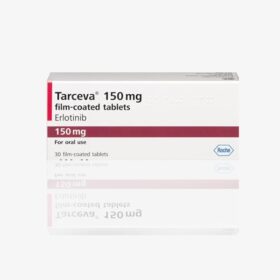- Your cart is empty
- Continue Shopping

Product
Description: Paclitaxel is a chemotherapy medication derived from the bark of the Pacific yew tree (Taxus brevifolia). It belongs to the taxane class of drugs and is used in the treatment of various cancers, including ovarian cancer, breast cancer, lung cancer, and certain types of advanced or metastatic cancers.
Indications: Paclitaxel is commonly prescribed for the treatment of different types of cancer. It works by interfering with the normal function of microtubules, cellular structures essential for cell division. This disruption ultimately leads to the inhibition of cancer cell growth and division.
Mechanism of Action: Paclitaxel stabilizes microtubules in cells, preventing them from breaking down during cell division. This stabilization interferes with the normal process of cell division, leading to the arrest of cancer cells in the G2/M phase of the cell cycle and inducing cell death.
Administration: Paclitaxel is usually administered through intravenous (IV) infusion. The dosage and schedule are determined by the treating oncologist based on factors such as the type and stage of cancer, overall health, and the patient’s response to the treatment.
Side Effects: Chemotherapy medications, including paclitaxel, can cause a range of side effects. Common side effects may include nausea, vomiting, hair loss, fatigue, and changes in blood cell counts. More serious side effects may occur, and it’s essential to report any unusual symptoms to the healthcare provider promptly.
Precautions: Patients receiving paclitaxel are closely monitored for potential side effects, and regular blood tests are often conducted during treatment. Precautions are taken to manage potential allergic reactions, and it’s important for patients to inform their healthcare provider about any pre-existing conditions or medications they may be taking.
Please note that the specific details, including the brand name “Paclitax” and the dosage mentioned, may vary, and it’s important to refer to the prescribing information provided by the manufacturer or consult with a healthcare professional for accurate and personalized information.














Reviews
There are no reviews yet.